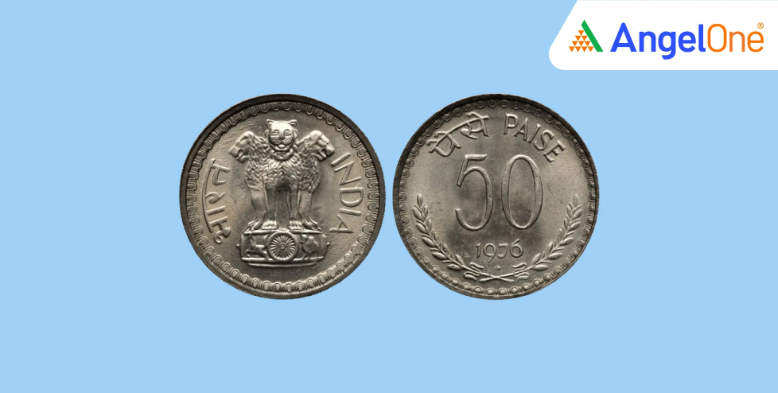
The 50 paise coin is rarely used today. Yet, its legal status remains a point of curiosity. Is the 50 paise coin still a legal tender in India? The answer is yes. According to official regulations, the 50 paise coin is still a valid form of payment. However, its legal acceptance comes with a specific condition, which is crucial for the public to understand.
Legal tender is a form of payment legally recognised to settle a debt. The Government of India mints all coins. The Reserve Bank of India (RBI) manages their distribution. This structure makes both coins and banknotes legal tender. The Coinage Act, 2011, defines the rules for using coins. For coins of one rupee and higher, they are legal tender for amounts up to ₹1,000.
The 50 paise coin has a different rule. It is legal tender for any sum not exceeding ten rupees. This means a person can't be forced to accept more than ₹10 worth of 50 paise coins in a single transaction. However, accepting a larger amount voluntarily is not prohibited. The RBI has also cautioned the public against fake offers to buy or sell old coins. These are often scams and have no connection to a coin's legal status.
All Indian coins, including the 50 paise, are minted at 4 government facilities. These are located in Mumbai, Hyderabad, Kolkata, and Noida. The Security Printing and Minting Corporation of India Ltd. (SPMCIL) operates these mints. The Reserve Bank of India (RBI) then distributes these coins.
The RBI uses a wide network of currency chests. These are storehouses at select banks. They stock and distribute banknotes and coins to local bank branches. Some banks also have small coin depots. These depots specifically handle coins of value below one rupee, like the 50 paise. The increased use of digital payments has reduced the need for small-denomination coins. This has also shifted the public's focus away from physical currency.
Read more: Independence Day 2025: India's Amrit Kaal Checklist for a Viksit Bharat.
In short, the 50 paise coin is still a legal tender in India. The law permits its use for transactions up to ten rupees. Although it is now uncommon, it remains a valid part of India's currency system. Its production and distribution are managed by government mints and the RBI's network. Despite the move towards digital finance, the 50 paise coin holds its official legal standing.
Disclaimer: This blog has been written exclusively for educational purposes. The securities mentioned are only examples and not recommendations. This does not constitute a personal recommendation/investment advice. It does not aim to influence any individual or entity to make investment decisions. Recipients should conduct their own research and assessments to form an independent opinion about investment decisions.
Published on: Aug 14, 2025, 11:19 AM IST

We're Live on WhatsApp! Join our channel for market insights & updates
